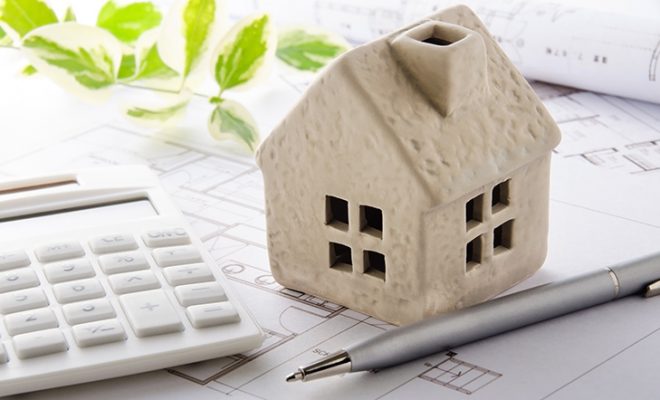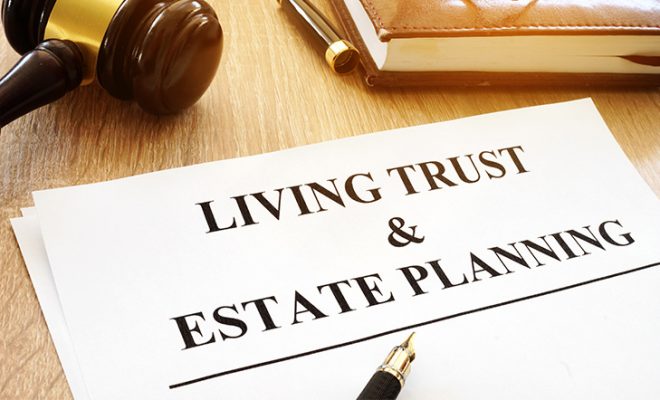Why You Should Not DIY Your Estate Planning

DIY or do it yourself has taken over the world by storm. Whether it was the COVID-19 pandemic that mandated people to isolate themselves in their homes or the increasing popularity of learning to do new things via social media, people have been encouraging the idea of making their own things on their own. The DIY approach works with many things. Making your own furniture, growing vegetables and fruits in your backyard, and crafting decoratives like coasters, photo frames, etc., are simple tasks that can add value to your life. But, implementing similar strategies when it comes to financial planning is not easy, especially when you lack the right professional acumen.
Estate planning is one of the most crucial components of a financial plan. Moreover, with the drawing uncertainty over life in the past two years, a lot of people have woken up to the reality of having a sound estate plan. What was once considered important only for the wealthy and older age groups has now become a necessity for people of all ages. If you are one among the many who have realized the importance of having an estate plan, you should also know how to do estate planning properly.
DIY estate planning may seem inexpensive and something that you can do after reading a few journals and consulting with some peers. However, the intricacies of estate planning can be hard to gauge. The smallest of mistakes can impact your loved ones negatively and lead to family feuds in your absence. Hence, it may be advised to always consult a professional estate planner or financial advisor when crafting an estate plan.
This article covers the negative impacts of DIY estate planning and how to do estate planning the right way. Keep reading to know more.
Can I do my own estate planning?
Yes, you can do your own estate planning. However, you may not be able to do it efficiently unless you have a deep understanding of all legal and tax laws governing the transfer of your estate to your beneficiaries. Estate planning is a lot more elaborate than simply creating a will and leaving behind your belongings to your next of kin. It involves strategies to minimize tax liabilities on your beneficiaries, avoiding probate costs, creating health and financial directives in case you are incapacitated and unable to make decisions, setting up a trust to protect a minor, etc. All of this requires time, effort, and awareness. As a busy individual with tons of professional and personal responsibilities, being mindful of each and every minute detail can be next to impossible. Hence, it can help to leave the details of the matter to a professional with adequate expertise and experience.
How can DIY estate planning harm me?
DIY estate planning can harm you in more ways than one. Here are some repercussions of a self-made estate plan:
-
Ignorance of state laws
Every state in America has a distinct law for estate and inheritance taxes. As of 2021, 12 states impose estate taxes. In addition to this, the District of Columbia also imposes an estate tax. Meanwhile, 6 states impose an inheritance tax. However, spouses are exempt from paying inheritance tax in all these states. Maryland is the only state that imposes both estate and inheritance tax. Hawaii and Washington have the highest estate tax compared to others. In the case of inheritance tax, Nebraska tops the list with an 18% tax rate.
Knowing these tax laws is essential when creating an estate plan. These tax rates are also bound to change with time and different lawmakers and governments. When you make a DIY estate plan using an online platform, you may overlook these tax provisions. If there is any change in the law, the DIY app may or may not take responsibility for it. This can negate the benefits of inheriting an estate for your beneficiaries. If the inheritance turns out to be a tax liability, they may also not want to keep it. So, it may be better to consult a professional estate and tax planner to be sure of your decision. Professional advisors can teach you how to do estate planning correctly and help lower taxes by adopting measures like gifting and availing of gift tax exemptions.
-
Incomplete plan with just a will
One of the biggest errors you can make with a DIY estate plan is to only draft a will. Assuming that a will is all it takes to secure your loved ones future in your absence is a mistake. While a will is an essential document, it is not inclusive of every detail. A will simply dictates your wishes about the distribution of your assets. It is a legal directive but not always a conclusive one. There are many details that you must oversee when writing a will. For instance, while a will can be handwritten and typed, it must have witnesses. A will without a witness is likely to undergo probate. Secondly, a will is not a one-time document. It needs to be updated every time you acquire a new asset or see a change in your personal life and relationships. For instance, if you create a will now and buy a house after a couple of years, you must update the will. Otherwise, the ownership of your house will be uncertain after your demise. Similarly, if you make a will while you are married, you may appoint your spouse as a beneficiary. However, if you get divorced or widowed, you would have to update your will and add a different beneficiary.
There are a lot of free apps on the internet that let you make a will in less than five minutes. But these apps do not take cognizance of multiple assets, the fact that the beneficiaries for each of these assets may be different, and that you must keep updating your directives as per the changes in your life. For instance, if the beneficiary on your insurance policy is your spouse, but the beneficiary on your will is your child, the court will give precedence to your spouse and not your child. This is why it is vital to ensure that the names match in all accounts and places.
-
Having no legal support
Since a will, trust, or directive are legal documents, having legal representation and support becomes imminent. Right from following the prescribed rules to using the right legal jargon, a lawyer or certified estate planner can help you ensure that all of the fields have been correctly filled and there is no ambiguity in your estate documents. On the other hand, when you adopt a DIY estate planning approach, the chances of committing errors are greatly increased. Estate planning apps usually request you to fill a questionnaire at the beginning. This questionnaire aims to understand your requirements and take into account the number of your assets and family members. But it is only a generalized set of questions. These questions may not consider unique scenarios, such as what to do if you have a child with disabilities, creditor issues, global investments, etc. Hence, the estate plan that they deliver can lack credibility and resolution. Moreover, when you have no legal help, there is no one to clear your doubts or offer you advice on how to plan the transfer of a certain asset. In this case, you may follow your gut instinct or mimic the course of action adopted by a colleague. But the fate of your estate plan will always hang in the balance, and you will never have the peace of mind to be entirely sure of your decision.
-
Losing out on precious money
DIY estate planning can help you save some money in the short term, but it can cost your estate way more in the future. The chances of an ill-planned estate going through probate are quite high. Court and probate fees can eat into your estate’s worth and put a financial burden on your beneficiaries. This can lead to resentment, fights, and inconvenience. While making an estate plan on a free app may seem like the right thing to do, you should understand that the app is free for a reason. Such an estate plan will not hold the test of time and the complexity of legal procedures. On the other hand, when you hire a legal and financial expert, you get a customized service where all your concerns are addressed. A professional estate planner will have the right experience and qualifications to handle complicated estate matters with finesse and ease. Not only will this offer you peace of mind and less stress but also ensure that everything happens as per your wishes. The possibility of errors is reduced, and your loved ones are protected from creditors.
In addition to this, hiring a legal expert is not all that expensive. You can opt for different plans and services as per your requirements. Financial advisors also offer fee-based or commission-based services. You can pick one as per your budget constraints. It is also important to think of estate planning as an investment in the future of your loved ones and not as an unnecessary expense. Changing your attitude and outlook towards this essential task will help you pick a competent professional who can secure your estate.
-
Falling victim to scams
You can never be sure of the authenticity of a DIY estate planning platform. While there are some online services that offer genuine advice, many are nothing but a scam. Estate planning documents must be legal, notarized, and made in the presence of a witness. They have to adhere to the requirements of the court. If your documents are incomplete or incorrect, you risk going through probate. Probate is a legal process that settles your estate after death and distributes it among the rightful heirs. The process is court-supervised and hence can cost a lot of time and money. If your estate planning documents have not been properly made, your estate will undergo probate. This implies years of court hearings and costly lawyers. Moreover, when your documents are not accurately worded and formulated, your inheritors and creditors can contest your will. This can lead to more chaos and expenses for your family members.
Relying on an unverified DIY estate planning platform puts your loved ones at the risk of enduring all this. Moreover, if you find yourself being cheated or duped, you may want to file a lawsuit, which can again cost you time and money. But all of this can be avoided by hiring a certified estate planner and following the proper procedure to make an estate plan.
What should you do instead of DIY estate planning?
Having a far-sighted approach is one of the best things you can do when making an estate plan. When you restrict your vision to the short term, you risk making decisions in haste. For instance, you may give more importance to saving money with a DIY plan. But the same plan can cost your estate thousands of dollars at a later stage. Considering the fact that you spend many precious years of your life earning and accumulating wealth, it can help to give a little time and money into crafting a foolproof estate plan as well. This will ensure that your heirs receive their share without any hassles and are able to use it to their benefit. This will also help you leave behind a positive legacy, and your family members will remember you fondly for the efforts you made for their wellbeing.
To summarize
If you are worried about the future of your near and dear ones, make sure to make a concrete and wholesome estate plan that covers all possible circumstances. Use clear and precise language in your will and directives and talk to your family members in detail. For example, if you have more than one child, you must talk to them and try to understand their goals. This will help you decide which assets to bestow upon them that they can benefit from. It is always good to be clear about your wishes to eliminate the possibility of fights or disagreements.
A professional financial advisor can help you create a suitable financial plan for your requirements and estate. So, go ahead and contact one near you.










